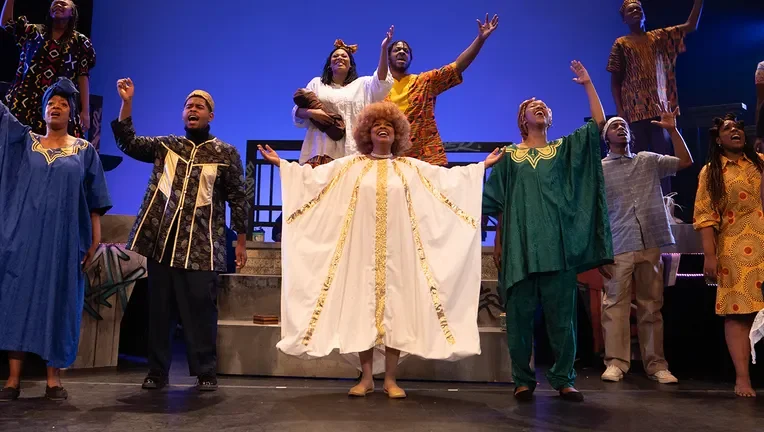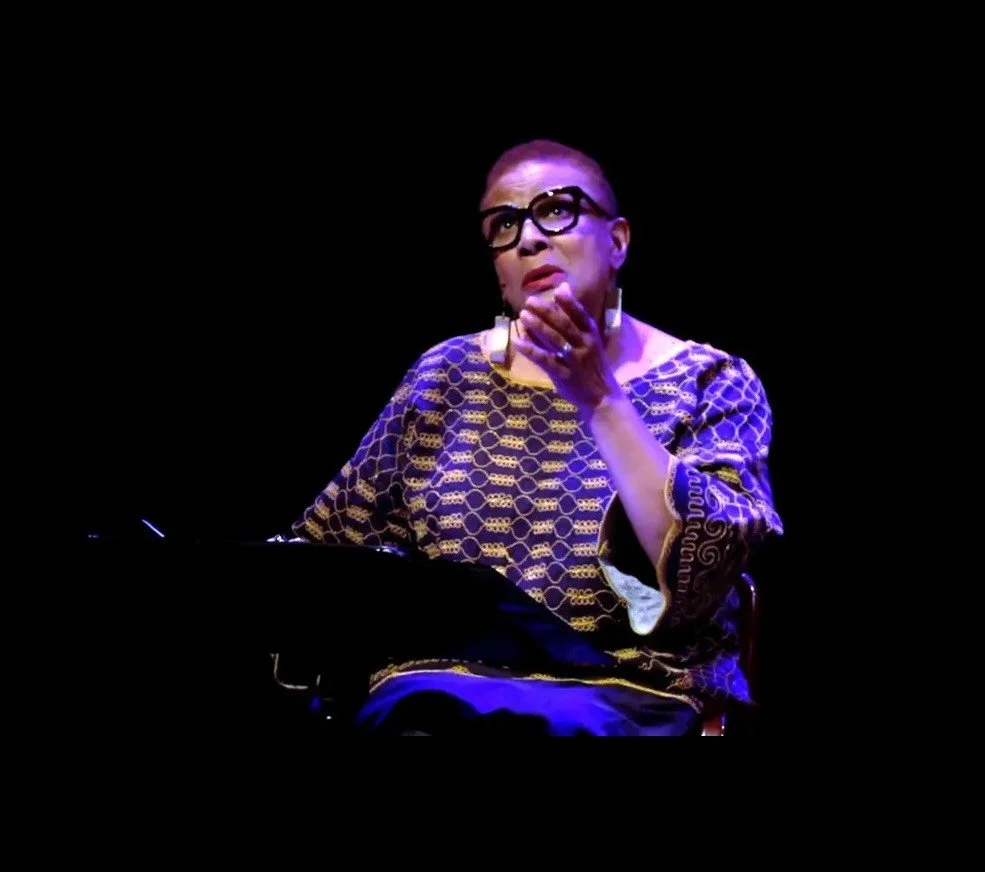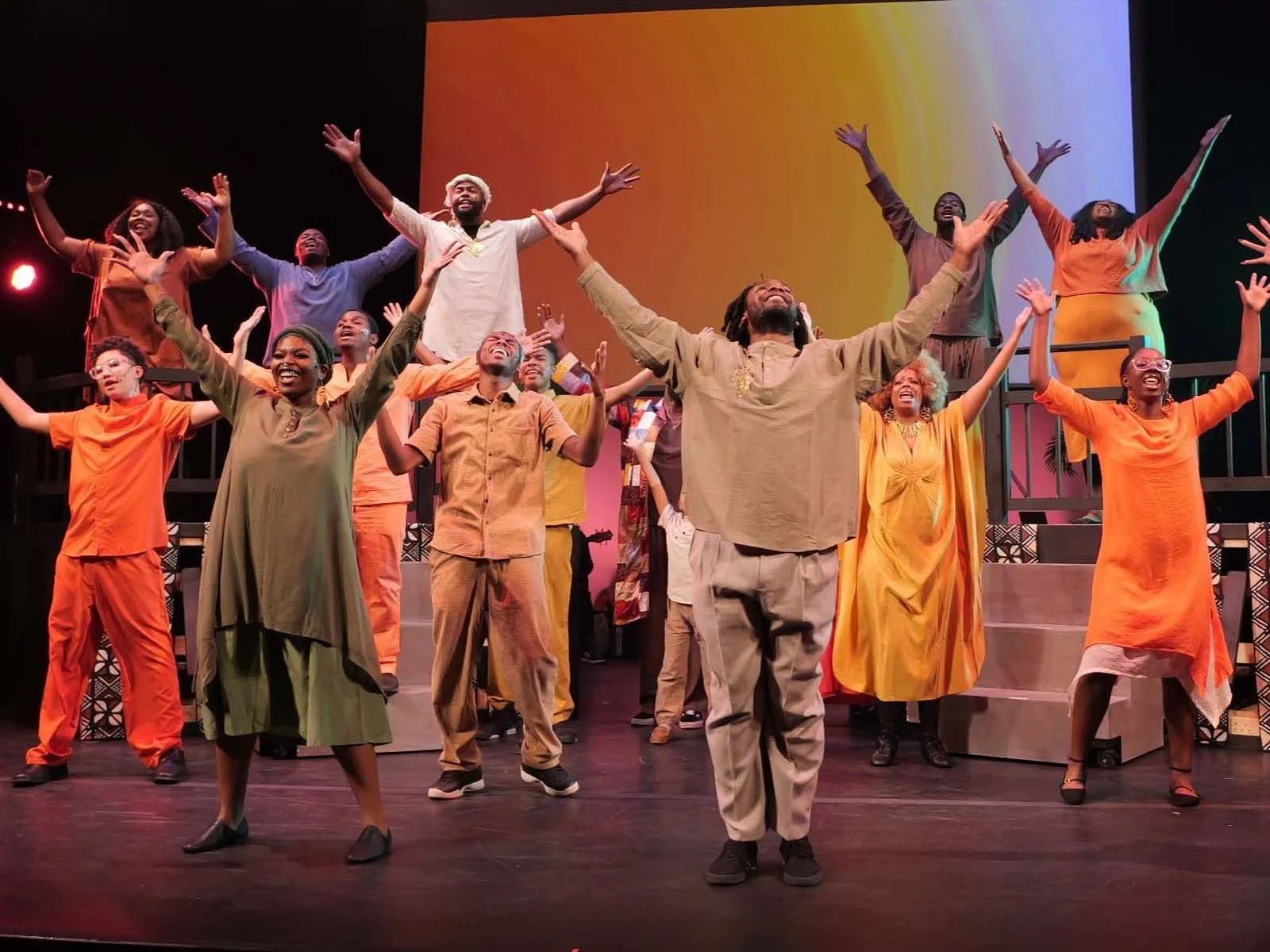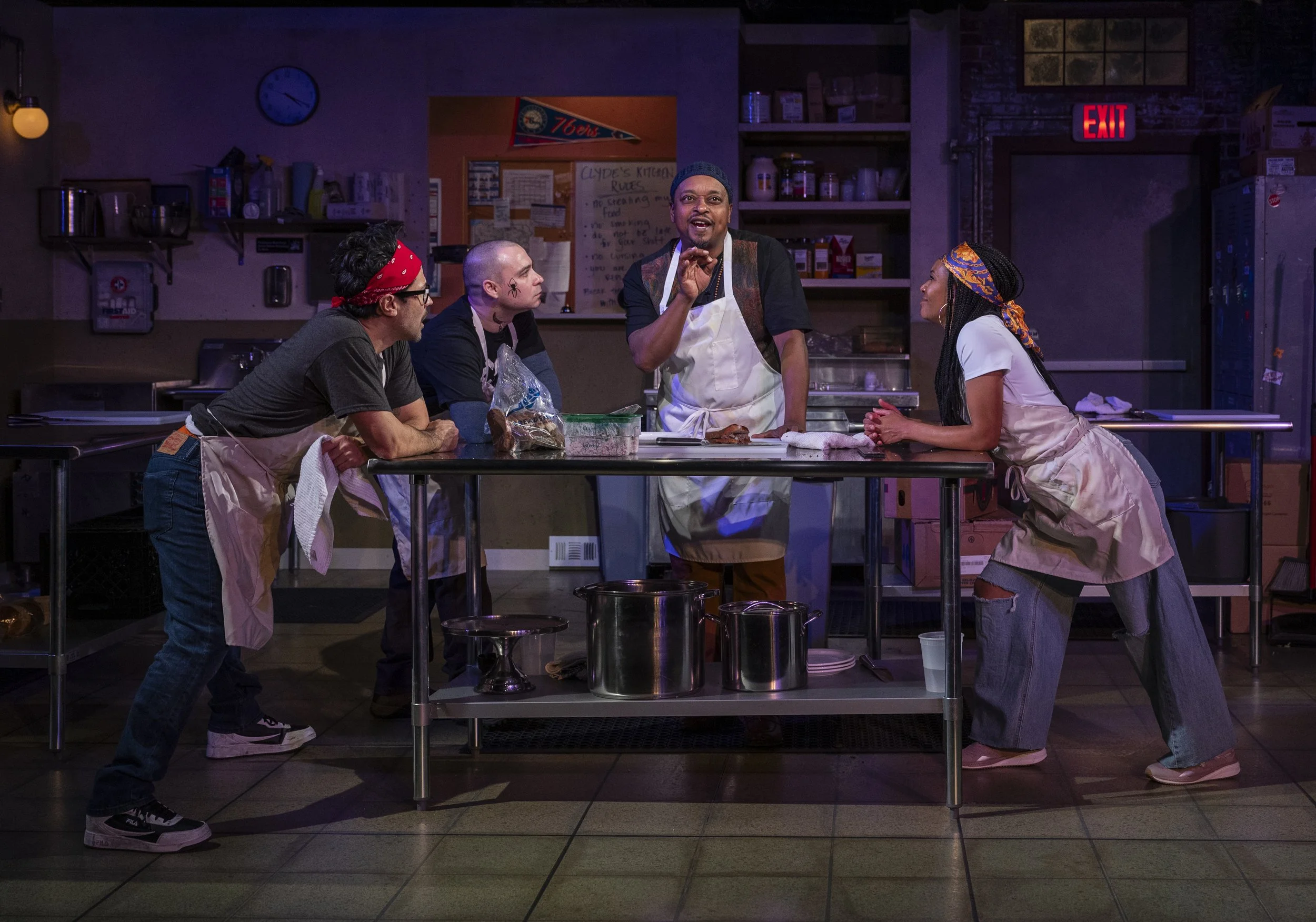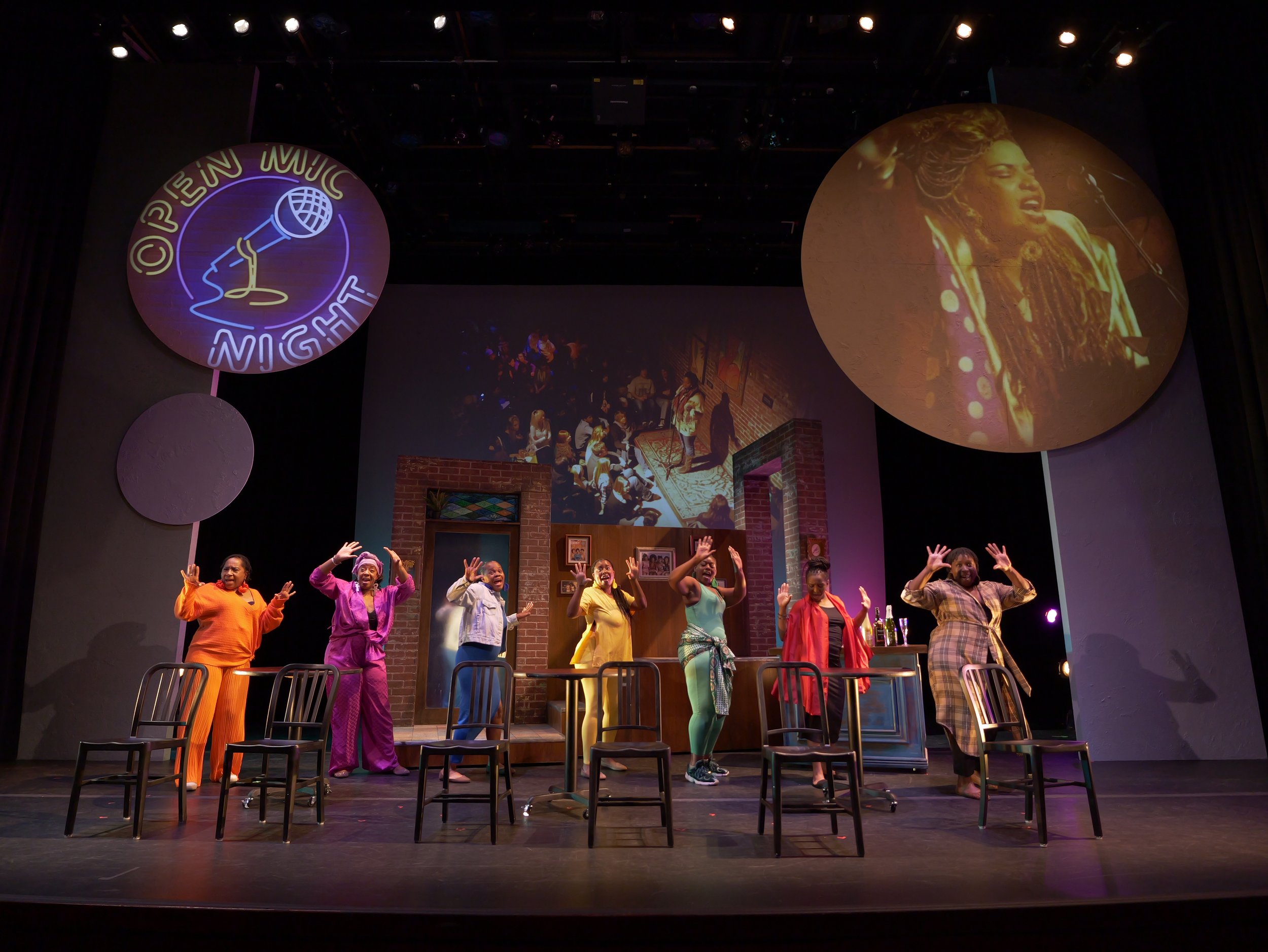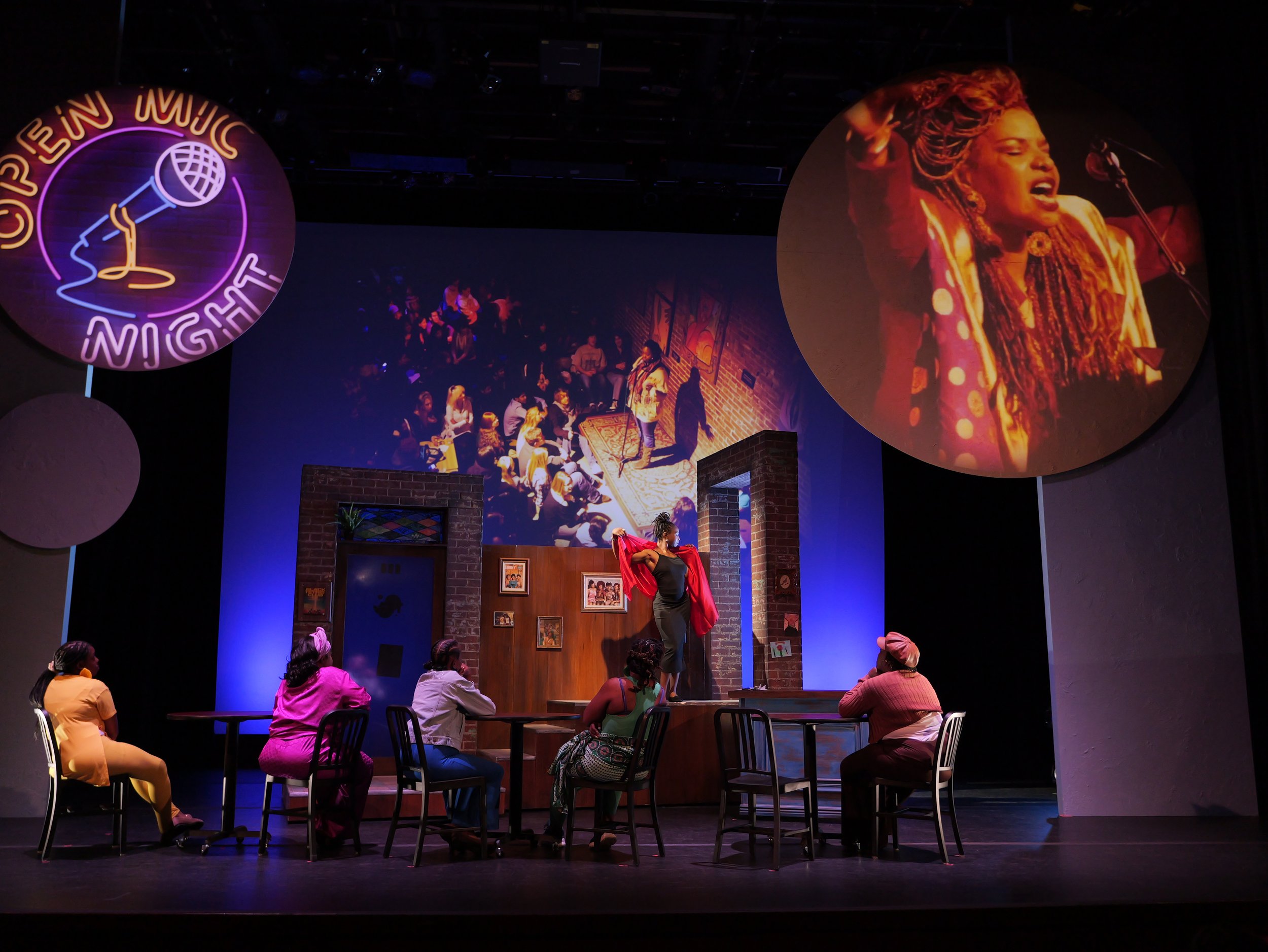Thespian Legend Set To Direct Monumental 10th Anniversary Production of “Black Nativity”
/What comes to mind when you think of this time of year? The festive array of depictions shown around the holiday season often includes winter wonderland markets, filled ice skating rinks, tree lighting ceremonies, and countless trips to shopping malls so that the babies can sit on Santa’s lap. Uniquely, the city of Milwaukee has always shed light and built much anticipation around its very own holiday staple for the community. That timely and riveting holiday staple has become the theatrical adaptation of “Black Nativity” by trailblazing poet, Langston Hughes. Unlike other holiday-inspired traditions and communal staples, this joyful and spiritual production goes beyond the surface of the true reason for the season of Christmas from a divine perspective, rather than being commercialized.
Over the last ten years, non-profit and Black-led organization Black Arts MKE has showcased the soul-stirring, culturally rich gospel song-play, Black Nativity, through a diverse and multifaceted lens. Every director has been granted the fulfilling opportunity of bringing their significance and vision of Black Nativity to life at least twice for the hopeful and buoyant characters that keep the streets of our city alive and energized. What has now become a highly anticipated holiday classic in Milwaukee has brought everything but disappointment over the past decade. Black Nativity boldly celebrates the holiday season from an African-American viewpoint and never fails in placing a glimmering spark inside of the eyes of everyone who sees the production. Although the intriguing essence and authentic spiritual message of the work of art consistently shines through the audience and cultivates much impact, the heavy-hitting song-play is reimagined every year in a completely different way.
As this year marks the 10-year anniversary of the stellar and exhilarating showcase of admirable, Langston Hughes’ Black Nativity, the production embarks on a new journey after taking on fresh and seasoned leadership. The next visionary who has been given the occasion to reimagine the song-play by transitioning the meaning and theme living in their head onto the vibrant stage is none other than thespian legend, Sheri Williams Pannell. Before Pannell became Associate Professor of Theatre at the University of Wisconsin-Milwaukee, Co-Founder and Producing Artistic Director of Bronzeville Arts Ensemble, and Co-Director of the Fine Arts Ministry at Calvary Baptist Church, she was just like all of us, someone who completely fell in love and immersed themselves in the Black Nativity story--ten years ago. After several successful showings of this masterpiece and a theatrical abundance of talented directors who have ignited their own fires inside of Black Nativity, the million-dollar question is, what can everyone expect from Pannel’s reimagination of it this year? How will it represent something it has never displayed before, or how similar in style and music will the high anticipated song-play be compared to previous years?
“From the rhythmic dancing, eye-catching costumes, and carefully crafted storytelling, right away I thought, ‘Oh one day I would like to direct this show.”
“She is a distinguished author/playwright, a phenomenal theatrical talent, with an impressive historical reservoir of the culture and community”
Origins and taking a deep dive back into our complex and fascinating roots are the tools being utilized the most by Pannell as the thespian legend has begun directing this year’s showcase of Black Nativity. The intentional artistic director wants to strongly emphasize the original text Langston Hughes wrote in 1961. Pannell’s primary goal is to increase the excitement and enthusiasm people have for celebrating African-American traditions. The feeling of authentic joy and being fully represented in all aspects—mind, body, and soul is the foundation she has cultivated to set the tone for the entirety of the show. Not only is one side of African-American history being brought to life on stage, but also underrepresented traditions as well, such as the unifying Kwanzaa celebration. Her intentionality shows effortlessly. For example, a new partnership with Members of Divine Nine has emerged with Pannell’s Black Nativity showcase. The kind and stylish members have donated authentic African garments and textiles that have been utilized as inspiration for the costume design. She is paying attention to every detail, but wants the message to remain the same: find joy and gratitude in life, Jesus Christ’s life, and never let your trials and tribulations define you.
“It is my goal to maintain the spirit of faith, hope, and joy in the birth of the Christ Child, which Hughes so lovingly expressed in his musical, while infusing African American traditions practiced during the holiday season, especially on New Year’s Eve known in the Black community as Watch Night. This musical is our holiday offering to the world. To recognize that even in the most difficult moments in our history, African-American people have found a way to have joy. Black Nativity is an example of this beautiful truth.”
Want to celebrate this holiday season in a unique and electrifying way? Is indulging in the colorful and cultural soul-play already a tradition for you and your family? Purchase tickets today and reimagine the true meaning of this holiday season.
Performance Schedule
Each show features a post-show talkback and a full runtime of two hours.
• Thursday, December 11, 2025, 7:30 p.m. (Student Matinee 11:00 a.m.)
• Friday, December 12, 2025, 7:30 p.m. (Student Matinee 11:00 a.m.)
• Saturday, December 13, 2025, 2:00 p.m. and 7:30 p.m.
• Sunday, December 14, 2025, 2:00 p.m.
TICKETS ON SALE NOW
blackartsmke.com/blacknativity
$62 | Reserved Seating
Group, Student, and Artist rates available.
Tickets available at the Marcus Center Box Office, 929 N. Water St., Milwaukee, WI, or by calling 414-273-7206.
Groups of 10 or more should contact Group Sales at 414-273-7121 x210.
Special discount rates are available for students and artists.
Black Arts MKE’s season is generously supported by Bader Philanthropies, Greater Milwaukee Foundation, Herzfeld Foundation, and Johnson Controls Foundation. Additional support for Black Nativity by Langston Hughes has been generously provided by the Forest County Potawatomi Foundation, the Harri Hoffman Family Foundation, Gruber Law Offices, and the Wisconsin Arts Board.
Desriana Gilbert | Entertainment & Social Journalist for /CW



